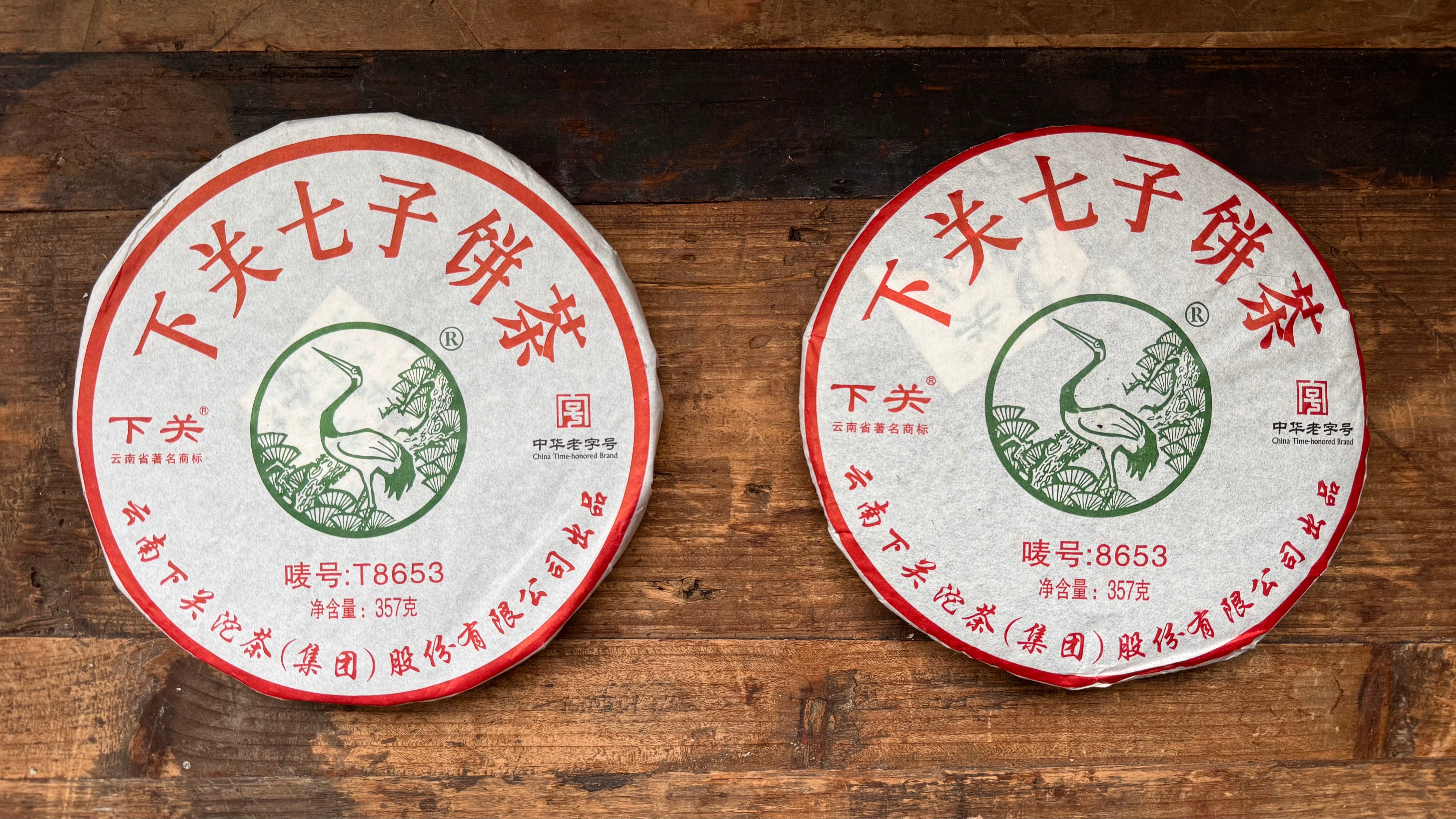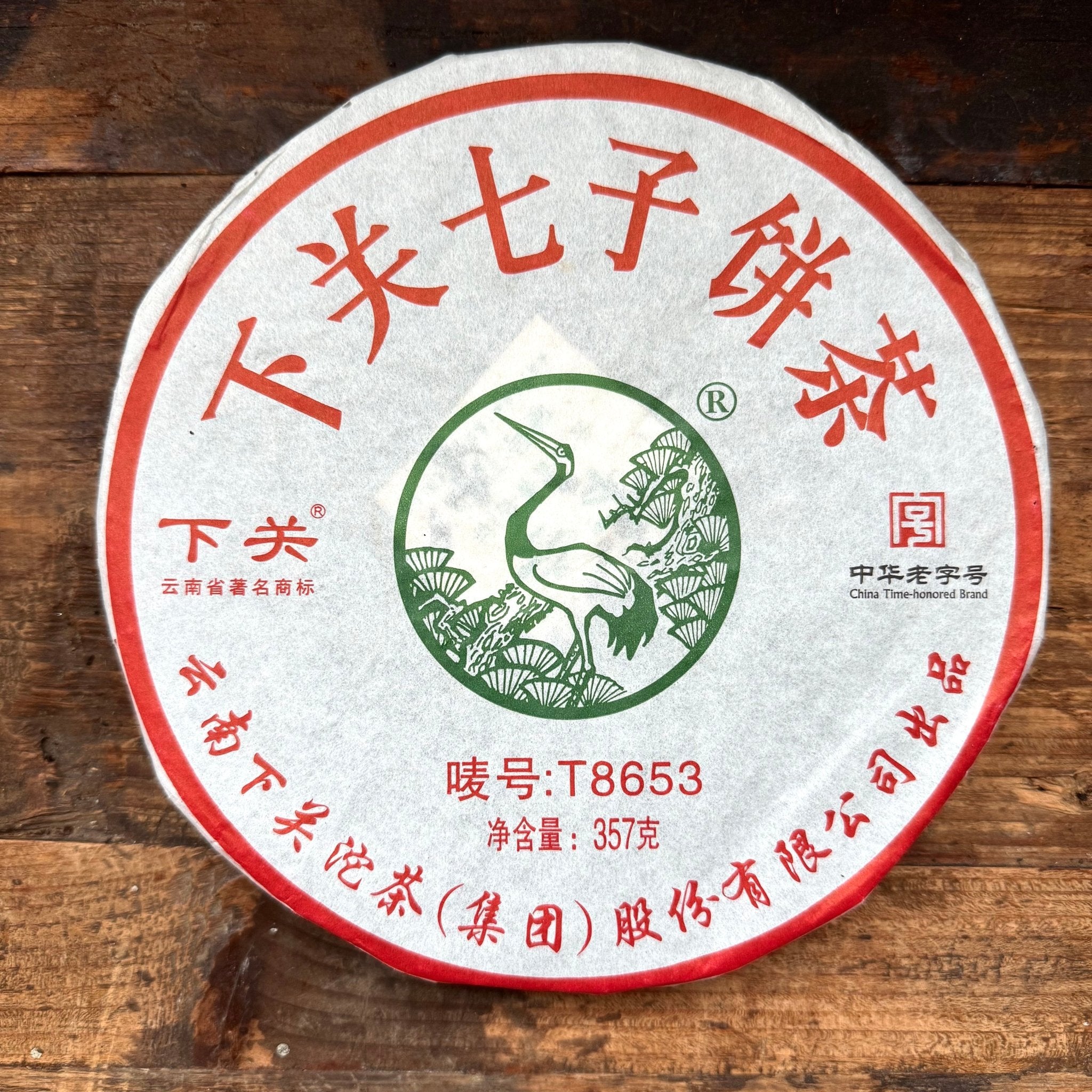3 vintages of a timeless classic. 8653 is one of the most iconic Xiaguan teas, easily recongizeable by both collectors and aged tea aficionados. It is a fantastic tea to have in your aged collection, and extremely affordable if you'd like to stock up on several cakes.
The recipe was developed in the 1970's. These tea cakes have been dry aged in Vancouver since 2016.
The recipe stands for:
8: the first digit often represents the year the recipe was created. "8" signifies the 1970s.
6: The second digit indicates the grade of the tea leaf material. "6" is a medium-grade, robust blend, perfect for withstanding aging and providing a strong, characteristic flavour.
5: The third digit is the factory code. "5" is the code for the Xiaguan Tea Factory.
3: The fourth digit represents the recipe or the specific product line.
Type: Raw Pu-erh. Yunnan Da Ye, sun dried.
T8653: this is a very tightly compressed 'Tie Bing' or Iron Cake. Tightly compressed tea takes longer to 'age' compared with looser, traditionally pressed tea cakes. It is, however, a very highly valued format for long term pu er collectors.
P8653: this is a traditionally pressed 'Pao Bing'. The leaves are not as tight.
FT8653: this is a special edition T8653, custom made for the a highly respected Taiwanese tea company (Fei Tai). FT8653-10 was the 2010 production and is considered one of the top vintages for this tea.
Which one should you get? Our suggestion:
- Try them all! Their price is quite affordable.
- Stock up on whichever you like the most, to age at home and share with friends in years to come.
2024 8653 is available in boxes of 7, if you choose this format.
References:
This is an article from Xiaguan's Beijing flagship store about this iconic recipe.
This tea has fantastic aging potential! Check out this post from the good folks at Yunnan Sourcing, with a 2001 T8653 exceeding $600!
About Xiaguan Tuo Cha
Founded in 1902, Xiaguan is a company with a rich history, including caravans from Yunnan to Tibet and a leading part in the development of 'cooked' Pu Er in the 1970s.























































